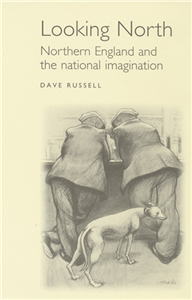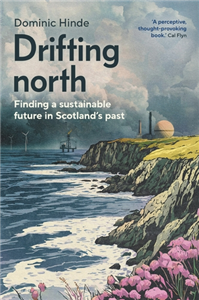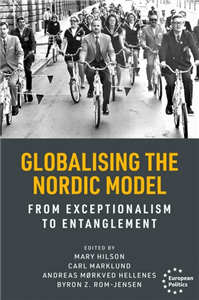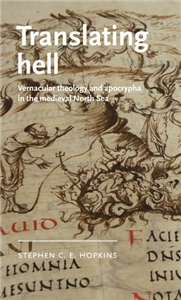Your Search Results
-
Promoted ContentJune 1994
Burn-out bei Frauen
Über das Gefühl des Ausgebranntseins
by Freudenberger, Herbert; North, Gail
-
Promoted Content
-
 Trusted Partner
July 2021
Trusted Partner
July 2021The World of the North
Between Ragnarok and welfare utopia: A cultural-historical deconstruction
by Bernd Henningsen
— Analysis of how we view Europe's North and how this image emerged — An outsider's perspective on Nordic societies and their self image — Serves as an introduction into Northern European culture and society Our image of Northern Europe has been shaped by projections and desires in the long history of encounters: berserkers and war atrocities, bad weather, beautiful nature, stable political systems, social welfare, equality and prosperity, peacefulness, low corruption, hygge and Bullerby – all this is part of the Nordic narrative. But what about the religious, linguistic and ethnic homogeneity, what about the muchvaunted Nordic cooperation? How do politics "work" in the North? Why are Northern Europeans the happiest people?
-
 Trusted Partner
Humanities & Social SciencesSeptember 2025
Trusted Partner
Humanities & Social SciencesSeptember 2025Industrial memory in North East England
Negotiating northernness
by Victoria Allen
Industrial memory in North East England examines how the region's industrial myth and memory have been articulated in the renegotiation of northernness. The book offers a critical contextualisation of the concept of northernness and the English North, and an introduction to the concept of the PopCultural Portfolio, a mixed-methods approach to conjunctural analysis in cultural and memory studies. The book provides six richly illustrated case studies to demonstrate the practical application of cultural studies' expansive and inclusive understanding of texts, bringing together materials from North East football, folk, indie and exhibition culture to establish how the North East's industrial past continues to be remembered and functionalised as industrial memory. In turn, the conjunctural analysis demonstrates how industrial memory is articulated and mythologised as north(east)ernes in contemporary popular culture.
-
 Trusted Partner
Literature & Literary StudiesDecember 2019
Trusted Partner
Literature & Literary StudiesDecember 2019Reimagining North African immigration
by Véronique Machelidon, Patrick Saveau
-
 Trusted Partner
The ArtsJuly 2004
Trusted Partner
The ArtsJuly 2004Looking North
Northern England and the national imagination
by David Russell, Jeffrey Richards, Martin Hargreaves
Investigating areas as diverse as travel literature, fiction, dialect, the stage, radio, and television, feature film, music and sport, this fascinating book assesses the attitudes and portrayal of the North of England within the national culture and how this has impacted upon attitudes to the region and its place within notions of 'Englishness'. ;
-
 Trusted Partner
Humanities & Social SciencesJanuary 2026
Trusted Partner
Humanities & Social SciencesJanuary 2026Russian strategy in the Middle East and North Africa
by Derek Averre
-
 Trusted Partner
Geography & the EnvironmentOctober 2025
Trusted Partner
Geography & the EnvironmentOctober 2025Drifting north
Finding the future at the top of the world
by Dominic Hinde
Scotland's past and future collide in this engaging journey through climate change, fossil capitalism and the struggle for a sustainable world. Scotland's history and future are entangled with climate change and the story of the modern world. This small country on the fringes of northern Europe pioneered fossil capitalism and played a key role in its spread across the planet. It is a living museum of the crisis of the west, of deindustrialisation, stagnation and the struggle to build a better future from the ashes. Journalist and sociologist Dominic Hinde travels from the treeless Highlands to the lowland cities, struggling to balance memories with aspiration. Through this journey he finds that his own sensory turmoil, shaped by recovery from a near fatal accident, mirrors the disarray of the fossil fuel transition - an uncertain passage between what was and what must be. Part memoir, part environmental history, part travelogue, this is a compelling narrative of connections - to place, energy and the possibility of renewal. Through the lens of one country, it asks a vital question: can the lessons of the past help us build a more sustainable future?
-
 Trusted Partner
February 1981
Trusted Partner
February 1981Gespräche mit Herbert Marcuse
Gesprächsteilnehmer: Herbert Marcuse, Jürgen Habermas, Tilman Spengler, Silvia Bovenschen, Marianne Schuller, Berthold Rothschild, Theo Pinkus, Erica Sherover, Heinz Lubasz, Alfred Schmidt, Ralph Dahrendorf, Karl Popper, Rudi Dutschke, Hans Christoph Buch
by Herbert Marcuse, Hans-Martin Lohmann
Keinem Philosophen der Gegenwart ist es gelungen, so ins öffentliche Bewußtsein einzudringen wie Herbert Marcuse. Seit den späten sechziger Jahren haben seine Schriften weltweit die Neuansätze gesellschaftstheoretischer Diskussion, nicht nur in der studentischen Protestbewegung, erheblich beeinflußt. Die tagespolitisch motivierte Rezeption seines Werkes führte jedoch dazu, daß der bedeutende Philosoph zeitweise hinter dem Moralisten und engagierten Politiker verschwand. Dabei ist dieser ohne jenen nicht wirklich zu verstehen. Es scheint daher heute geboten, an den philosophischen wie lebensgeschichtlichen Zusammenhang zu erinnern, in dem seine Arbeiten stehen, die seinen Ruhm begründet haben. Mit Freunden, Gegnern und Weggenossen hat Herbert Marcuse immer wieder über Möglichkeiten einer radikalen Veränderung der Gesellschaft nachgedacht und gestritten. Der vorliegende Band versammelt einige dieser Gespräche über Fragen der politischen Philosophie und der Ästhetik, über das Verhältnis von Psychoanalyse und Kritischer Theorie, über die Entwicklungsgeschichte der Linken in Europa und ihre Organisationsprobleme, über die Emanzipation der Frau und die Rolle der Protestbewegung – Gegenstände also, die Marcuses Denken nachdrücklich beschäftigt haben und die in ihrer Diskussionsgeschichte ihrerseits von Marcuses Denken geprägt worden sind.
-
 Trusted Partner
Humanities & Social SciencesMarch 2026
Trusted Partner
Humanities & Social SciencesMarch 2026Globalising the Nordic Model
From exceptionalism to entanglement
by Mary Hilson
The five Nordic countries - Denmark, Finland, Iceland, Norway and Sweden - frequently attract attention as examples of a 'Nordic model'. The meanings of the term vary, but especially since the global financial crisis of 2008-9 the Nordic countries have often been portrayed positively, as examples of economic dynamism, innovation and social equality. Studies of these images of the Nordic countries and Nordic region and their international circulations are now a well-established field of research. This volume explores how the Nordic model has been shaped by global entanglements, in exchange not only with Western Europe and North America, but also with the Global South. Drawing on selected case studies, the volume offers new perspectives on the meanings of the Nordic model and Nordic exceptionalism in a global context during the half century since c. 1970.
-
 Trusted Partner
Humanities & Social SciencesMay 2025
Trusted Partner
Humanities & Social SciencesMay 2025The Caucasus Emirate
Ideology, identity, and insurgency in Russia’s North Caucasus
by Mark Youngman
Insurgency has plagued the North Caucasus since the collapse of the Soviet Union. Between 2007 and 2015, rebels waged their struggle under the banner of the Caucasus Emirate (Imarat Kavkaz, IK). This book systematically examines the IK's ideology to explain what the group claimed to be fighting for and against and how it sought to mobilise people behind its cause. It reveals a group with a weakly developed political programme, which aligned itself with global jihadism but consistently prioritised local concerns. It demonstrates the priority rebel leaders afforded to shaping local identities, but also their failure to forge a unified movement or revitalise armed struggle. Re-evaluating the IK's ideology helps us better understand the past and future of armed struggle in the North Caucasus.
-
 Trusted Partner
Humanities & Social SciencesJuly 2022
Trusted Partner
Humanities & Social SciencesJuly 2022Crossing borders and queering citizenship
Civic reading practice in contemporary American and Canadian writing
by Zalfa Feghali
Can reading make us better citizens? In Crossing borders and queering citizenship, Feghali crafts a sophisticated theoretical framework to theorise how the act of reading can contribute to the queering of contemporary citizenship in North America. Providing sensitive and convincing readings of work by both popular and niche authors, including Gloria Anzaldúa, Dorothy Allison, Gregory Scofield, Guillermo Gómez-Peña, Erín Moure, Junot Díaz, and Yann Martel, this book is the first to not only read these authors together, but also to discuss how each powerfully resists the exclusionary work of state-sanctioned citizenship in the U.S. and Canada. This book convincingly draws connections between queer theory, citizenship studies, and border studies and sheds light on how these connections can reframe our understanding of American Studies.
-
 Trusted Partner
Literature & Literary StudiesMay 2026
Trusted Partner
Literature & Literary StudiesMay 2026Translating hell
Vernacular theology and apocrypha in the medieval North Sea
by Stephen C. E. Hopkins
In the Middle Ages, hell was useful because it was vaguely defined. Canonical scriptures scarcely mention hell, leaving much to the imaginations of early Christians, who used it to sort out who belonged within the faith. This book explores how hell became a place for literary experiments with local challenges in theology and identity. Following the reception and transformations of two popular hell apocrypha, it argues that they served as this role because of their liminal textual authority. As noncanonical scriptures, apocrypha afforded medieval writers space to revise their hells (since they were not actually scripture), while also encouraging readers to revere those experiments as valid (since they seemed like scripture). The book brings together adaptations from early medieval England, Iceland, Ireland, and Wales, placing the early vernacular theologies of the North Sea in comparative conversation.
-
 Trusted Partner
Trusted Partner
-
 Trusted Partner
Humanities & Social SciencesSeptember 2020
Trusted Partner
Humanities & Social SciencesSeptember 2020Defense of the West
by Stanley R. Sloan, Lawrence Freedman
-
 Trusted Partner
April 1987
Trusted Partner
April 1987Das Land, nach dem ich mich sehne. Polnische Bibliothek
Lyrik und Prosa. Auswahl und Vorwort von Michael Krüger. Nachwort von Jan Bl'on'ski. Aus dem Polnischen von Guido von Birkenfeld, Karl Dedecius, Oskar Jan Tauschinski, Walter Tiel
by Zbigniew Herbert, Karl Dedecius, Guido Birkenfeld, Jan Błoński, Michael Krüger
Zbigniew Herbert, geboren 1924 in Lemberg, erlebte als Schüler die sowjetische, dann die deutsche Okkupation und schloss sich 1943 dem polnischen Widerstand an. Seit 1956 veröffentlichte er Gedichte und Essays. Jahrelang bereiste er Italien, Frankreich und Griechenland. Herbert, der 1998 in Warschau starb, zählt zu den großen europäischen Dichtern des 20. Jahrhunderts. Karl Dedecius, 1921 in Lodz geboren, galt als bedeutendster Mittler polnischer Literatur und Kultur in Deutschland. Als Übersetzer hunderter Bücher, Autor zahlloser Reden und Aufsätze, Herausgeber der Polnischen Bibliothek, Gründer des Deutschen Polen-Instituts in Darmstadt wurde er vielfach gewürdigt und ausgezeichnet, u.a. mit dem Friedenspreis des Deutschen Buchhandels (1990), dem Orden des Weißen Adlers (1999) in Polen und dem Deutschen Nationalpreis (2010). Karl Dedecius starb am 26. Februar 2016 im Alter von 94 Jahren in Frankfurt am Main. Michael Krüger wurde am 9. Dezember 1943 in Wittgendorf/Kreis Zeitz geboren. Nach dem Abitur an einem Berliner Gymnasium absolvierte er eine Verlagsbuchhändler- und Buchdruckerlehre. Daneben besuchte er Veranstaltungen der Philosophischen Fakultät als Gasthörer an der Freien Universität Berlin. In den Jahren von 1962-1965 lebte Michael Krüger als Buchhändler in London. 1966 begann seine Tätigkeit als Literaturkritiker. Zwei Jahre später, 1968, übernahm er die Aufgabe des Verlagslektors im Carl Hanser Verlag, dessen Leitung er im Jahre 1986 übernommen hat. Seit 1981 ist er Herausgeber der Literaturzeitschrift Akzente. Im Jahr 1972 veröffentlichte Michael Krüger erstmals seine Gedichte, und 1984 debütierte er als Erzähler mit dem Band Was tun? Eine altmodische Geschichte. Es folgten weitere zahlreiche Erzählbände, Romane, Editionen und Übersetzungen. Die Cellospielerin ist sein erster Roman im Suhrkamp Verlag. Michael Krüger lebt in München.
-
 Trusted Partner
Literature & Literary StudiesJuly 2022
Trusted Partner
Literature & Literary StudiesJuly 2022Nordic Gothic
by Maria Holmgren Troy, Johan Hõglund, Yvonne Leffler, Sofia Wijkmark
Nordic Gothic traces Gothic fiction in the Nordic region from its beginnings in the nineteenth century, with a main focus on the development of Gothic from the 1990s onwards in literature, film, TV and new media. The volume gives an overview of Nordic Gothic fiction in relation to transnational developments and provides a number of case studies and in-depth analyses of individual narratives. It creates an understanding of this under-researched cultural phenomenon by showing how the narratives make visible cultural anxieties haunting the Nordic countries, their welfare systems, identities and ideologies. Nordic Gothic examines how figures from Nordic folklore function as metaphorical expressions of Gothic themes and Nordic settings are explored from perspectives such as ecocriticism and postcolonialism. The book will be of interest to researchers and post- and- undergraduate students in various fields within the Humanities.
-
 Trusted Partner
Humanities & Social SciencesMarch 2017
Trusted Partner
Humanities & Social SciencesMarch 2017The Arctic in the British imagination 1818–1914
by Andrew Thompson, John M. MacKenzie, Rob David
The Arctic region has been the subject of much popular writing. This book considers nineteenth-century representations of the Arctic, and draws upon an extensive range of evidence that will allow the 'widest connections' to emerge from a 'cross-disciplinary analysis' using different methodologies and subject matter. It positions the Arctic alongside more thoroughly investigated theatres of Victorian enterprise. In the nineteenth century, most images were in the form of paintings, travel narratives, lectures given by the explorers themselves and photographs. The book explores key themes in Arctic images which impacted on subsequent representations through text, painting and photography. For much of the nineteenth century, national and regional geographical societies promoted exploration, and rewarded heroic endeavor. The book discusses images of the Arctic which originated in the activities of the geographical societies. The Times provided very low-key reporting of Arctic expeditions, as evidenced by its coverage of the missions of Sir John Franklin and James Clark Ross. However, the illustrated weekly became one of the main sources of popular representations of the Arctic. The book looks at the exhibitions of Arctic peoples, Arctic exploration and Arctic fauna in Britain. Late nineteenth-century exhibitions which featured the Arctic were essentially nostalgic in tone. The Golliwogg's Polar Adventures, published in 1900, drew on adult representations of the Arctic and will have confirmed and reinforced children's perceptions of the region. Text books, board games and novels helped to keep the subject alive among the young.
-
 Trusted Partner
Trusted Partner
-
 Trusted Partner
Trusted Partner
























